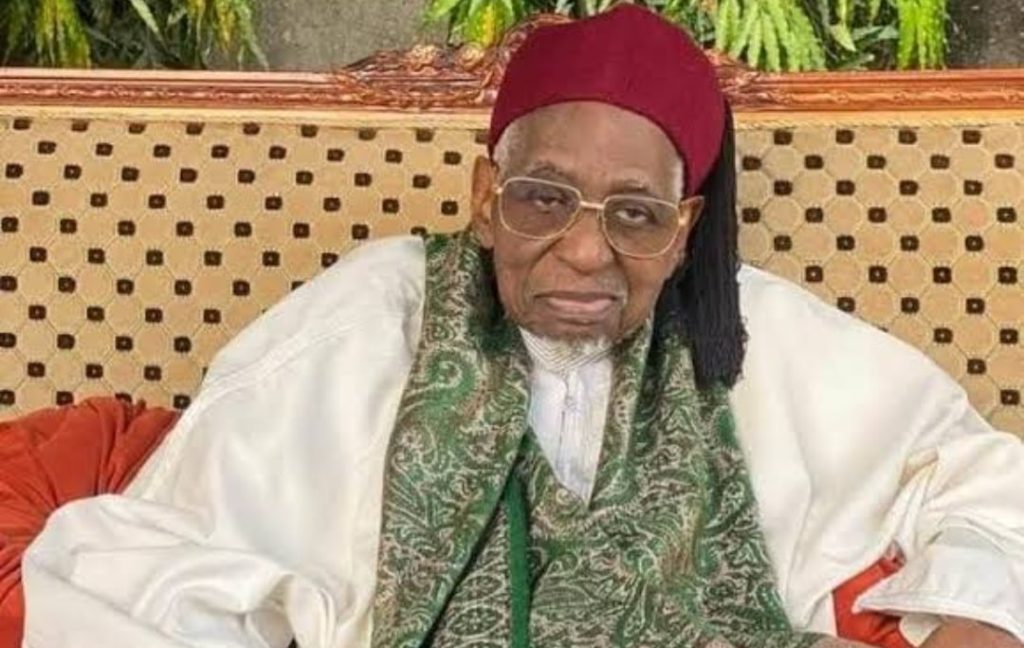The Asagba of Asaba, His Royal Majesty Obi Prof. Epiphany Azinge (SAN), has officially banned the activities of Eze-Nwanyi (female native doctors/goddesses) and other traditional practitioners in Asaba and its surrounding areas due to their alleged involvement in criminal activities.
The decision follows reports linking native doctors and a shrine in Asaba to the brutal murder of an Anambra lawmaker, whose body was discovered on the Niger Bridge.
A Proactive Measure to Restore Order
Expressing concern over Asaba’s rising crime rate, the monarch emphasized that the security of the city’s residents takes priority. He declared that the presence and activities of Eze-Nwanyi practitioners, particularly those who are not indigenes of Asaba, were becoming increasingly troublesome and contributing to unlawful acts.
“It is distressing to hear that Asaba has become the focal point of these criminal activities. As a result, we have decided to take measures to ensure peace and order in our land,” the monarch stated.
He noted that these traditional practitioners were allegedly aiding internet fraudsters, kidnappers, and other criminals. Effective immediately, their activities have been outlawed.
Mandatory Registration for Native Doctors
In addition to banning Eze-Nwanyi practitioners, the Asagba announced that all native doctors operating in Asaba must register and be regulated. They will require formal approval from the Otuhas, the governing legislative body of Asaba, before being allowed to operate.
This step, he said, will help authorities track and monitor the activities of these practitioners, ensuring they do not serve as enablers for criminal elements.
Restricted Access to Onishe Shrine
The monarch also imposed restrictions on visits to the Onishe shrine, one of Asaba’s most revered deities, stating that it had been misused for questionable purposes.
“Henceforth, no one—whether an indigene of Asaba or not—may visit the shrine without prior approval from the Otu-Ihaza,” he declared.
This decision aims to prevent criminal activities from being carried out under the guise of spiritual practices.
Operation ‘Know Your Tenants’ to Track Criminals
Raising concerns about the influx of unknown individuals into Asaba, the monarch revealed that criminals displaced from other regions were seeking refuge in the city. To address this issue, he announced the launch of Operation Know Your Tenants, requiring landlords to document and maintain records of all tenants.
“We no longer know who resides in Asaba. Many criminals now see Asaba as a safe haven, moving into various parts of the city to continue their unlawful activities. This initiative will ensure they do not find it easy to settle here,” he warned.
Under the program, security agencies will be able to quickly identify and track individuals when necessary.
Monitoring Hotels for Suspicious Activities
In another significant move, the Asagba stated that a palace-appointed task force will begin inspecting hotels and reviewing guest records to prevent criminals from using hospitality establishments as hideouts.
“We are working closely with security agencies to ensure criminals do not find refuge in Asaba. These measures are necessary to restore order and safeguard our land,” he said.
The Asagba’s directives reflect a bold step toward strengthening security in Asaba. By implementing strict regulations on native doctors, monitoring tenants, and inspecting hotels, the traditional ruler aims to curb crime and enhance safety within the community.













